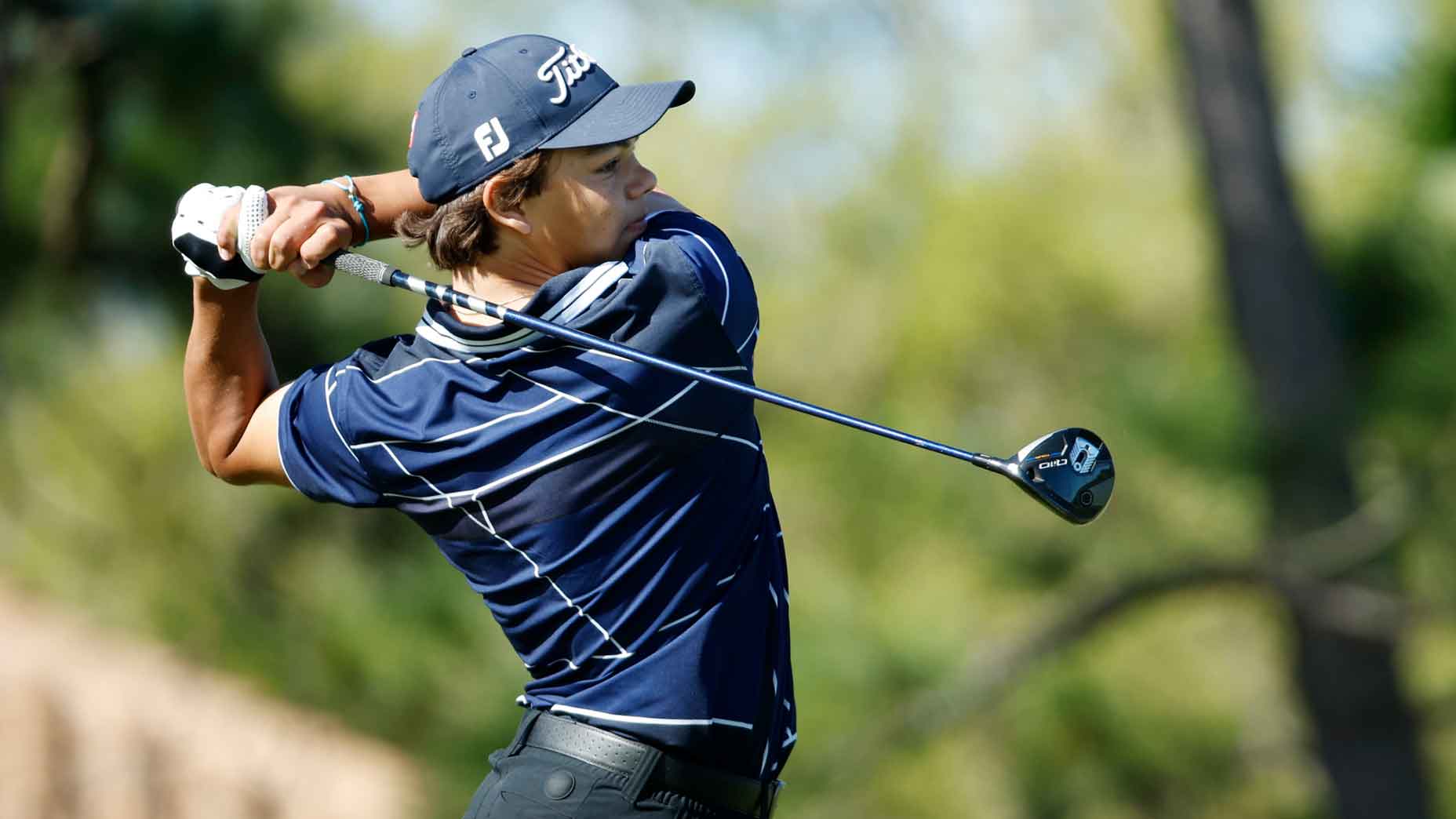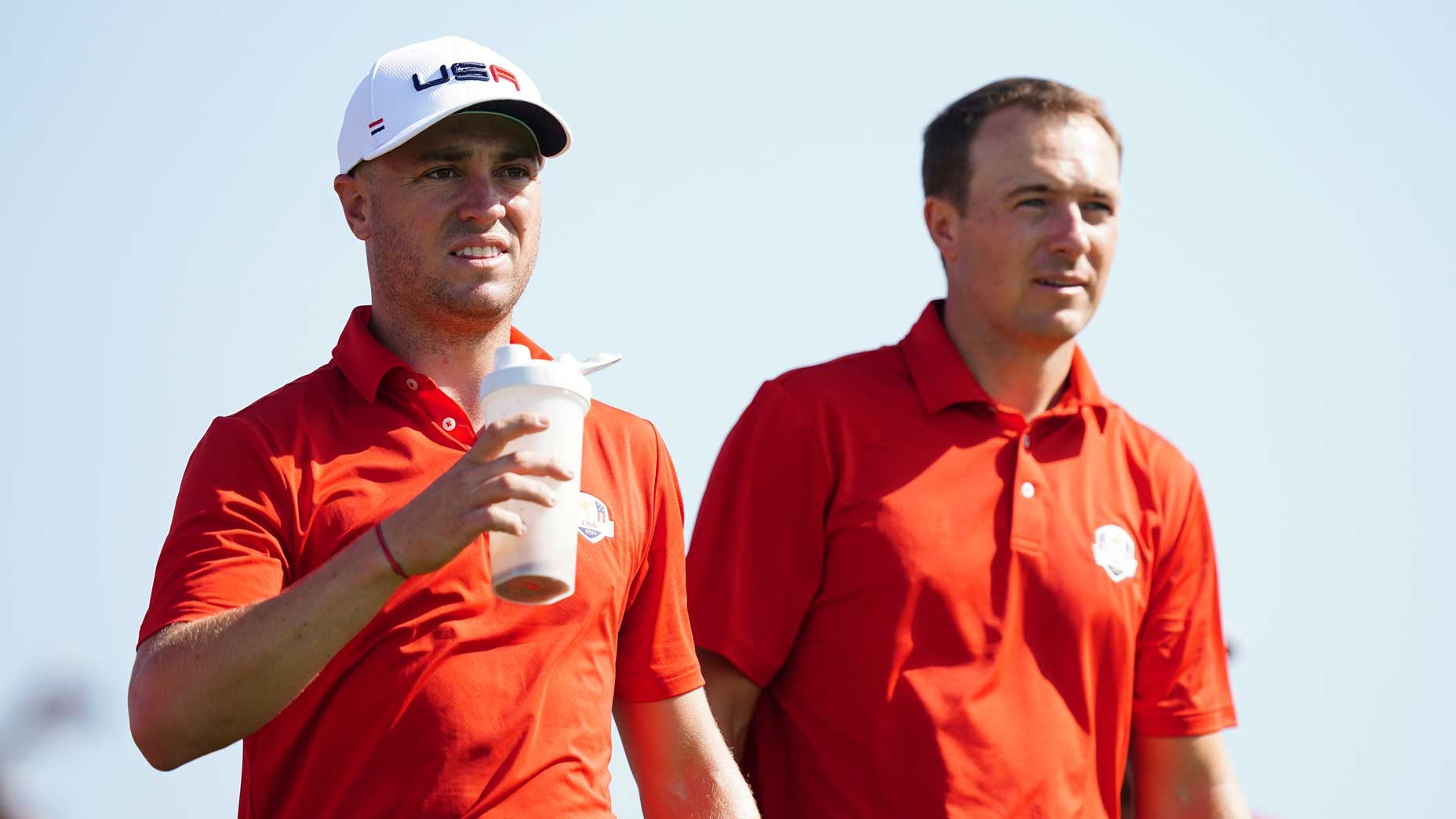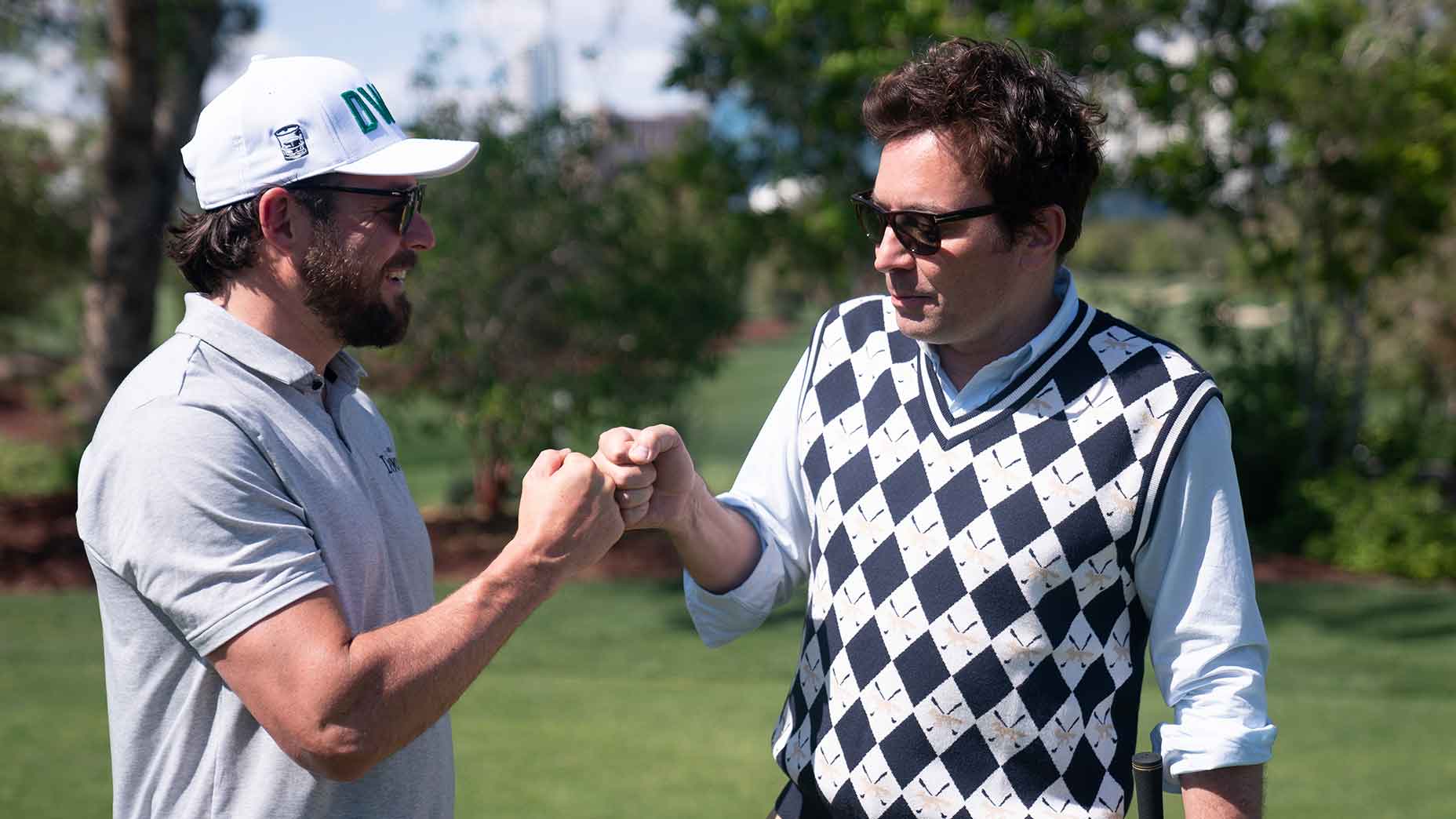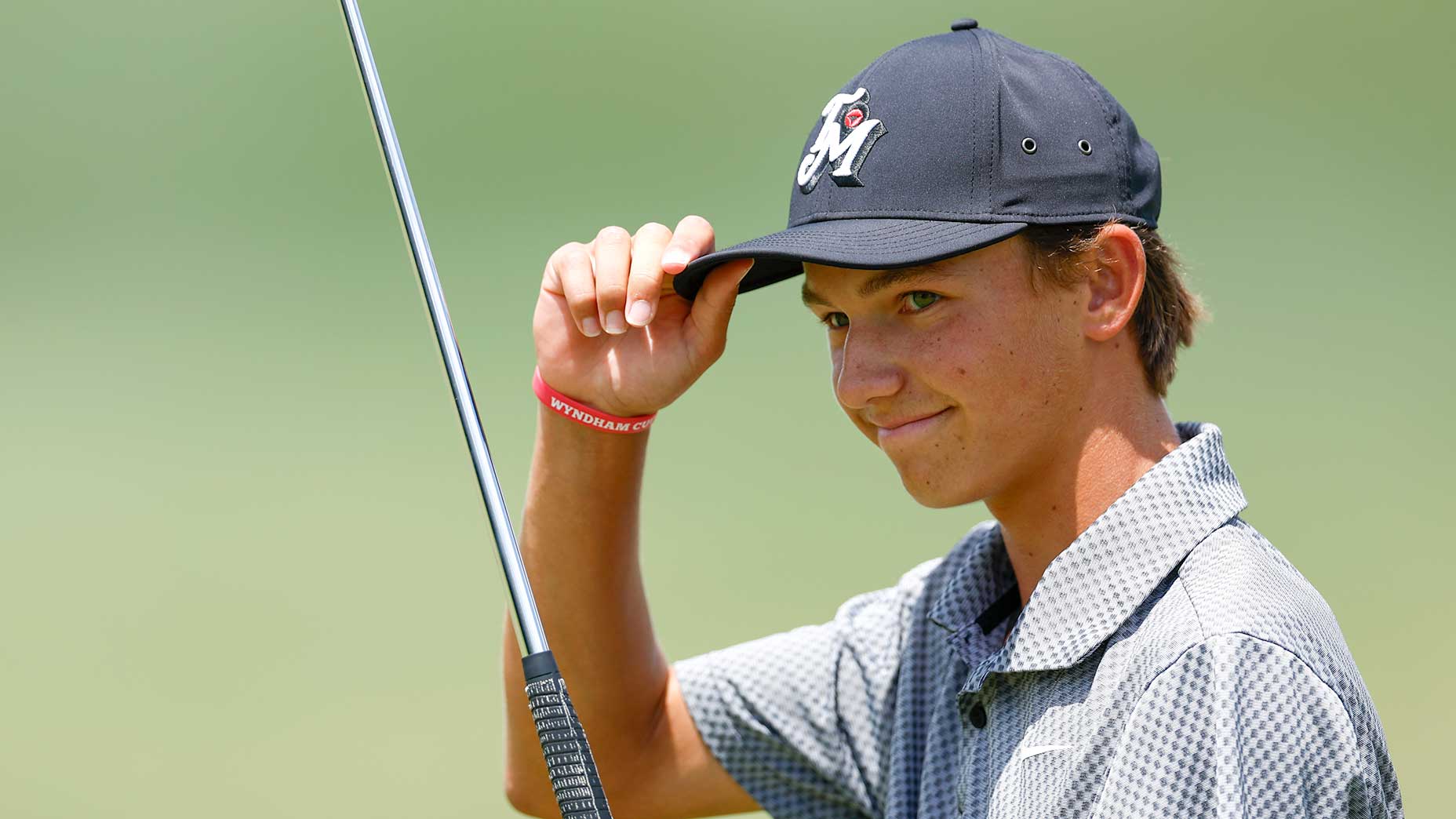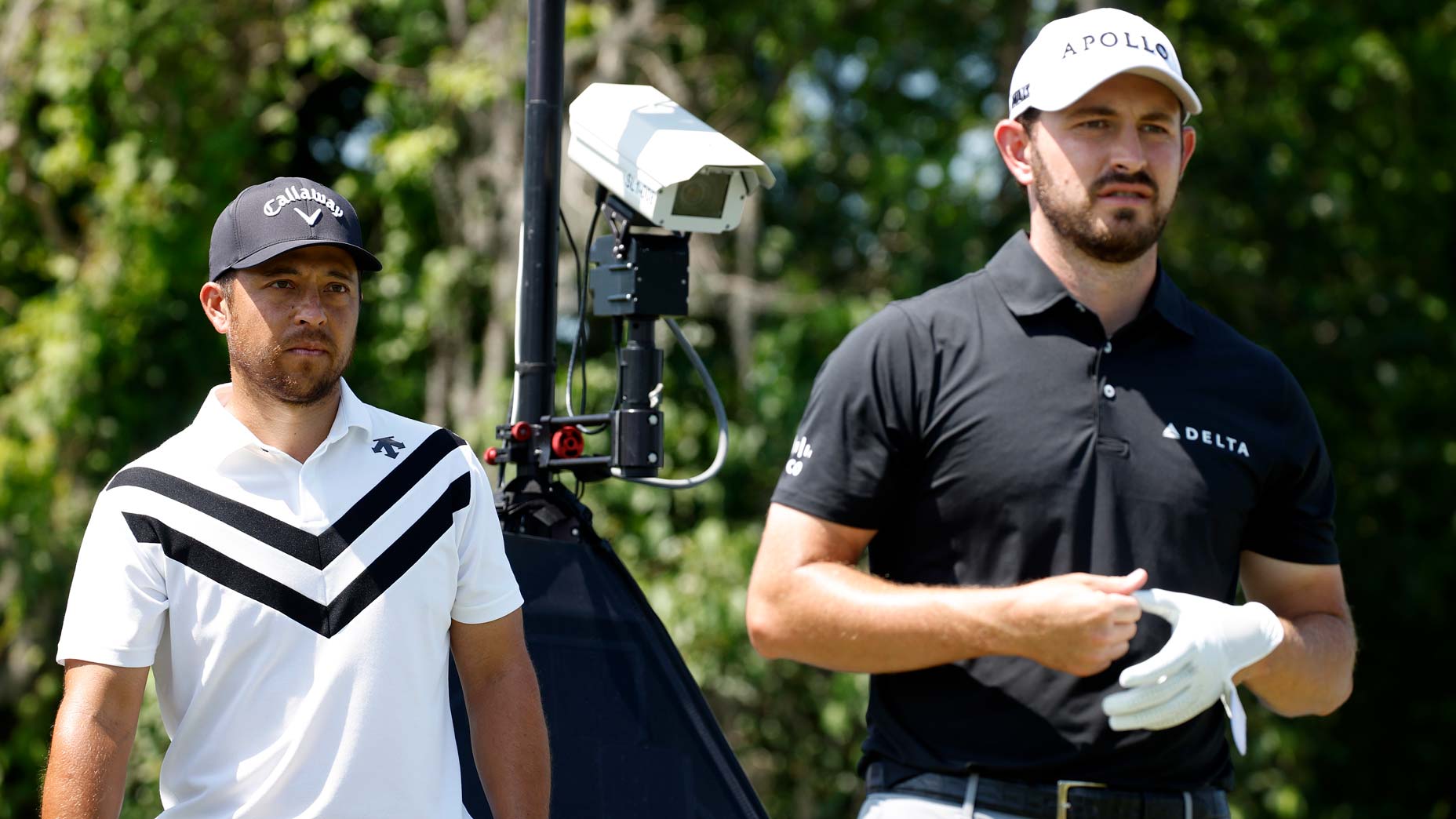LAS VEGAS — Late Tuesday morning, as Tiger Woods and Phil Mickelson wrapped up their warm-and-fuzzy practice round at sun-dappled Augusta National Golf Club, Jay Rood sat beside a bank of computers in a windowless office on the Las Vegas Strip, looking at the two men in a different light.
“They’re really pretty much a toss up but we know how the public is,” Rood said. “So we put Tiger at minus a quarter and Phil at plus 105.”
It’s often said around Augusta that the Masters doesn’t start until the back nine on Sunday. But for oddsmakers like Rood, the race and sports director for MGM/Mirage’s Nevada sports books, the action heats up early in the week.
As players make their way around the azalea-scented grounds, trying to get a feel for the fabled course, Rood camps out in the canned air of the Mirage casino, trying to get his head around his proposition bets.
Not to be confused with outright odds to win the tournament, which the MGM posts months in advance of the Masters, these are 11th-hour lines designed to give sports bettors a host of other options.
Swiveling in his chair, Rood ran through a sampling from his list. 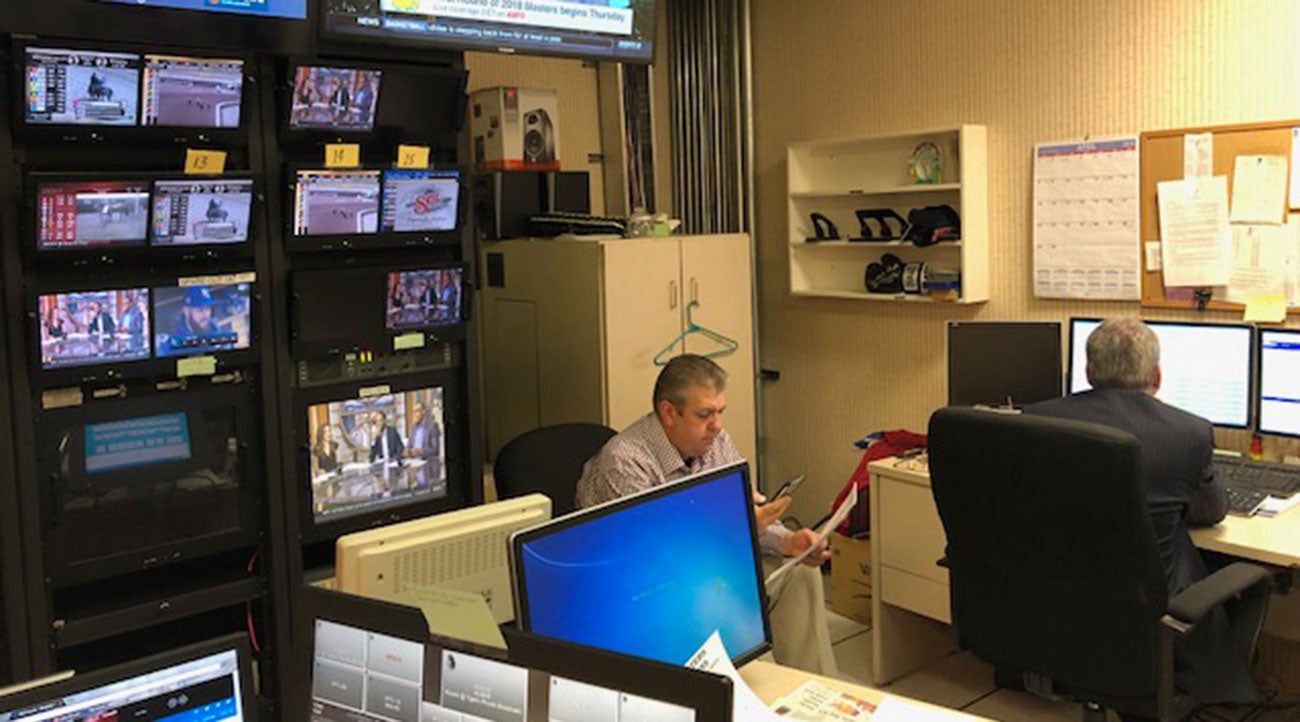
What will Bubba Watson shoot on Thursday? What will Jordan Spieth card on the opening hole? Who will tally the lower four-day total, Phil or Tiger?
In this matchup of heavy hitters, Rood saw a virtual dead heat. But he also knew the public’s love for wagering on Tiger, so he had tweaked the head-to-head line accordingly, listing Woods as the favorite at “minus a quarter” (meaning a bettor would have to risk $125 to win $100).
Mickelson was the slight underdog at plus 105, which is bookiespeak for a $100 wager wins you $105.
If Rood were a betting man (and he is; he’s just not allowed to place a wager at an MGM-owned property), he’d take Lefty.
“Obviously they both have great track records at Augusta,” Rood said. “But if you look at recent performance, Phil has already won this year. Tiger hasn’t won a tournament in four years and a major in 10 years. In this case, I’d say the sharp money is on Phil.”
Like golf, bookmaking is a mix of art and science, a blend of number-crunching and going with one’s gut. Rood is a seasoned practitioner of both. Now 49, he got his under-the-table start in the industry as a student at New Mexico State University, booking his buddies’ bets on a range of sports. In 1988, when Larry Holmes fought Mike Tyson for the heavyweight title, Rood made a dangerous rookie error by failing to balance the money on both sides. If Holmes had won, Rood would have been $12,000 in the red.
“It was pretty nerve-wracking,” he said. “Kinda like a matter of whether I was going to be able to stay in college or not.”
Nowadays, with house money behind him, he faces no such risks. Still, no one likes being wrong, or losing money for his bosses.
A list of players and handwritten notes spread out before him, Rood ran through his thoughts aloud, bouncing ideas off his colleague, Jeff Stoneback, his bookmaking right-hand man.
What about Spieth on the opening hole? Stoneback asked.
“He’s been nails on that hole,” Rood said, shuffling through his papers.
Statistical confirmation: Spieth had done no worse than par in his last eight tries.
It was settled: Spieth would be a heavy favorite to make par, listed at minus 150. (If, on the other hand, you wanted to bet Spieth to bogey the first, Rood was offering plus 220, or more than two-to-one on your money.)
Were these the “right” odds, reflective of Spieth’s true mathematical probabilities?
Rood was more concerned with being in the right ballpark, setting lines that would attract gambling action without exposing his book to too much risk.
“Hanging the initial price is less important,” Rood said, “than being able to adjust.” 
Just as there’s a sucker born everyday, so there is a shark on every corner, looking to take advantage of a loose line. And in golf, there are more loose lines than there are in other sports, such as football, where relevant stats help bookies set their spreads and the sheer volume of bets placed makes it easier to keep the money balanced on both sides.
Golf may get there someday, but it’s nowhere near there yet.
It’s closer than it was, though, especially around the Masters, which accounts for roughly 40 percent of the annual golf wagering at MGM’S Nevada properties. By week’s end, Rood said, he expects to book some 30,000 Masters-related bets.
That’s a marked difference from the early 2000s, when peak-Tiger put a damper on golf gambling interest.
“Tiger in those days was great for golf but he wasn’t great for us because the odds on him were so low people didn’t really want to bet on him,” Rood said. “At the same time, he was so dominant, it was hard to bet on anyone else.”
Along with the growth of fantasy sports, the parity on today’s talent-rich Tour has ramped up levels of fan engagement. One way to engage is by wagering.
“From a betting perspective,” Rood said, “it makes it a lot more interesting when you’ve got eight or 10 guys with a legitimate chance to win.”
Speaking of one of those guys, what about two-time Masters champion Bubba Watson, who has already won twice this year? More specifically, what should his over-under be for Thursday’s opening round?
72.5. That was Stoneback’s inkling.
“Wow, we’ve got a big discrepancy there,” said Rood, who suggested 69.5 instead.
Rood’s number stuck. He’s the boss.
Plus, Rood noted, “I follow golf a lot more closely than Jeff does. He’s more of a baseball a guy.”
On they moved to head-to-head first round match-ups, Rood relying on a bookmaker’s brew of hard facts and personal impressions.
Justin Thomas versus Dustin Johnson?
“I like where Thomas is right now. He’s not pressing. Everything is coming easy to him,” said Rood, before posting Thomas as a slight favorite.
Jason Day against Bubba Watson?
As Rood saw it, the Aussie had the edge.
“He is just more consistent with the driver,” he said.
If some of the lines seemed more sensible than others (a struggling Louis Oosthuizen as a first-round favorite over red-hot Ian Poulter? A volatile Jon Rahm over a rock-steady Paul Casey?), well, who really knew? Golf is fickle. Gambling, too.
Only a few months back, Woods was 100 to 1 to win the Masters. The line dropped, and dropped, but the money kept pouring in. At this point, Rood had fielded so much Tiger action that no amount of line-tweaking could limit his exposure. If Woods were to play up to his full potential, beating not just Mickelson in their head-to-head matchup but also every golfer in the field, it would be an exhilarating week for the game but an exasperating week for bookies.
“I would just have to sit back and have myself a whisky,” Rood said. “Then I’d call my bosses and tell them, ‘Well, we’ve pretty much lost on golf for the year.’”



